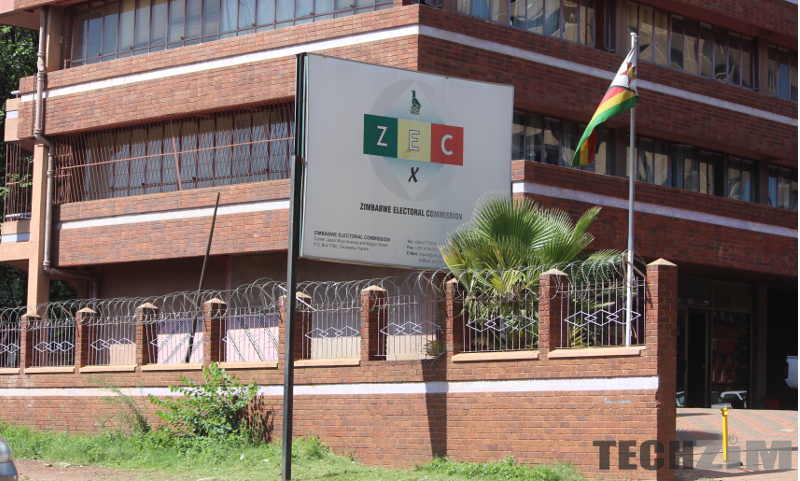How important is ethnicity in the election?
Zimbabwe’s political landscape as largely been devoid from backing on grounds of ethnic group, however, there is always a tendency to believe that, to win a presidential race a candidate needs to forge ethnic alliances to get a majority of that vote. In other words, there is always an element of wanting to seek backing through ethnicity.
Will the electoral commission deliver a credible election?
A new chairperson of the Zimbabwe Electoral Commission (ZEC) took office a few months ago after previous chairperson sudden resignation. The judgement on the credibility of the election will be passed after 30 July. The electoral commission says that the planned election will take place even if there may be anomalies on the voters’ roll which is independently being audited by civil society organisations with funding and technical assistance from the European Union and the United States.
How are campaigns using social media?
Social media is playing a bigger role in this election than in the past. Zimbabweans have an active loosely connected Twitter community. Their influence is being seen where they are pushing the agenda of their political favourites. Others have a dedicated team of social media troops whose role is to create a positive narrative and neutralise any discussion that is deemed as damaging the campaign they are backing.
The parties and candidates are also creating short video explainers for their campaign talking points, memes and hashtags to push their agendas and attack their opponents. The candidates are also using Facebook, YouTube and Twitter to broadcast political rallies.
There are 23 presidential candidates with forerunners being been especially busy. President Emmerson Mnangagwa has been sharing his vision of developing the country into a middle class by 2030 while MDC Alliance candidate Advocate Nelson Chamisa has been highlighting his vision of a modernised economy by 2023. Mr Chamisa’s campaign is essentially saying they are favourites to win the election because they have a sound economic policy that is achievable within a short period of time.
Thousands of candidates are also competing for various National Assembly, Senatorial, women quota and provincial council seats but not all are getting much coverage on mainstream media, a situation that has led some of them, to use social media platforms like Facebook Live to engage with voters directly.
How are politicians funding their election campaigns?
Zimbabwe does not have an election campaign funding law like in other countries where there are caps depending on the seat. There is also no requirement for political parties and candidates to disclose campaign funds sources. The absence of the law means candidates are currently free to spend as much as they want without any checks and balance. The ruling ZANU-PF and MDC-T get some funding under the Political Parties Finance Act of 2001 because they have at least 5 per cent of members in parliament. However, the funds are not enough to bankroll a party campaign; as a result, more funds are raised from membership and fundraising activities. Opposition parties, however, accuse the ruling party of using state resources in its campaigns.
What is the true picture of Zimbabwe’s economy?
Zimbabwe has failed to maintain steady economic growth in the past 5 years. Cash shortages that resurfaced in early 2016 have been the order of the day with the current government seemingly clueless on how to deal with the issue. Companies have also been complaining of lack of foreign currency to import machinery, spare parts and raw materials. Investors are in a wait out on the election period.
Positives
Zimbabwe’s military coup disposed of long time rule Robert Mugabe last November after 37 years in power. This has led to some opportunism that whichever party wins may get new investments anchored on the reduction of cost of doing business, bureaucracy and fighting rampant corruption that has tainted the fabric of nation-building.
Negatives
The economy has, however, been strained by corruption, heightened political tension and cash shortages and government issuance of treasury bills that are crowding out funding of the productive sector. Informal statistics put unemployment at between 80-90 per cent which may force dispassionate voters to be guided by who they think will best serve their economic interests.
How bad is corruption?
In 2016 report Transparency International Zimbabwe said that the country is losing an estimated US$1 billion due to illicit dealings. This is direct blame on the incompetence and ineffectiveness of the anti-corruption agencies that have failed to punish individuals implicated in graft. President Mnangagwa’s anti-corruption efforts have been all talk without concrete action. The Auditor-General annual reports have unearthed massive scandals involving inflation of costs of projects and payment to phantom companies however; nothing has been done to bring culprits to face the full wrath of the law.
The opposition led town councils have also been named in several scandals but some have accused the government of scapegoating. Constitutional bodies set up to fight corruption have been accused of partisan and lacking independence for example when one considers that the Zimbabwe Anti-Corruption Commission (ZACC) fails under the president’s office. This has resulted in others saying theft has become normal.






